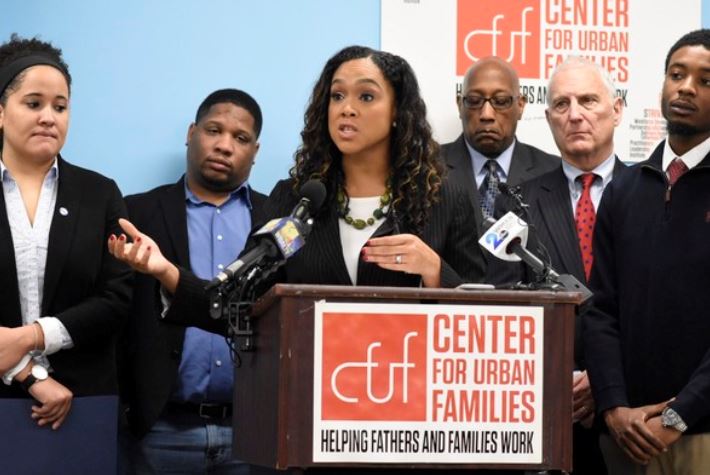[ad_1]
By Stephen Janis
Special to the AFRO
A conflict over the ability of a wide swath of Baltimore police officers to testify in court is raising more questions about the effectiveness of the beleaguered department that continues to be beset by scandal.
Recently, the Baltimore Sun reported The Baltimore Public Defender’s office sought access to a list of roughly 300 police officers that the Baltimore City State’s Attorney’s Office had
deemed problematic with regards to testifying in court. The agency responsible for defending hundreds of defendants who cannot afford legal counsel argued the list was critical to ensure they could adequately defend their clients.

Several requests seeking comment from the Public Defender’s office were declined.
But sources told the AFRO that the list is far more nuanced than the Public Defender’s office has portrayed it.
Many of the officers are flagged for minor infractions that the State’s Attorney’s office believes should be disclosed to the defense, but not necessarily severe enough to prevent the officer from serving as a witness.
So-called “do not call” lists, an informal registry of officers who cannot testify due to past
integrity issues, have been controversial. Police unions have characterized them as
capricious and lacking due process.
But others say a list so extensive is simply a sign of how a troubled department under federal consent decree continues to hamper the city’s ability to fight crime.
“If we have an officer with a significant integrity issue then the SA’s has a right to know about them because we don’t want a surprise during a murder trial,” mayoral candidate and former BPD spokesman T.J. Smith told the AFRO.
“But there has to be some sort of agreement as to what that ethical standard is.” Smith says any list must balance the severity of the officer’s offense with the need to effectively prosecute criminals.
“The commissioner and the state’s attorney need to get into a room and work it out.”
Baltimore has been on a torrid pace for homicides in 2020. So far, the city has notched 43 murders. Last year the city experienced 348 homicides.
But the onslaught of violence has been accompanied by a string of crimes by Baltimore
police officers.
Two weeks ago Sgt. Robert Dohony was the latest officer to face criminal charges after he was indicted for overtime theft.
Dohony was charged with falsely claiming roughly nine hours of overtime he didn’t work. Prosecutors allege Dohony claimed he spent nine hours listening to calls made by inmates from the city’s Central Booking facility. However, electronic records showed he had only spent 90 minutes monitoring phone communications.
In December, Sgt. Ethan Newburg was charged with 33 counts of misconduct in office and false imprisonment. The charges stemmed from a series of false arrests captured on body camera that allegedly show Newburg taking city residents into custody who had not
committed crimes.
Last year, officer Michael Gentil was convicted by a judge of committing a felony while in possession of a handgun.
Gentil was accused of nearly hitting Baltimore resident Kevon Miller with his car as Miller crossed the street in East Baltimore. Gentil brandished a gun and forced Miller to the
ground, and allegedly called him the n-word before he stomped his head.
Although Gentil’s charges required a mandatory minimum sentence, a city judge allowed him to serve his sentence on home detention while appealing his conviction, which could
take years.
[ad_2]
Source link

